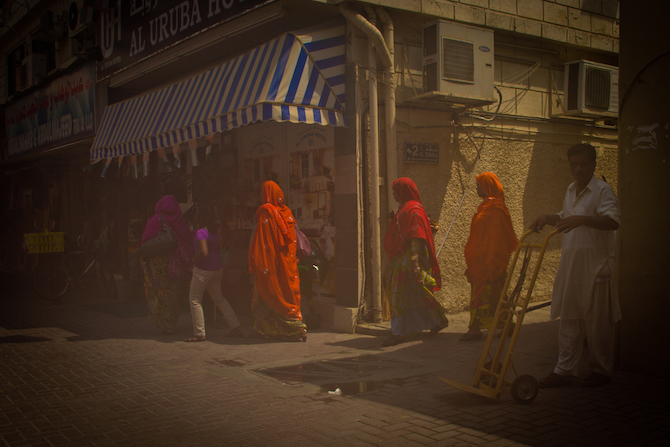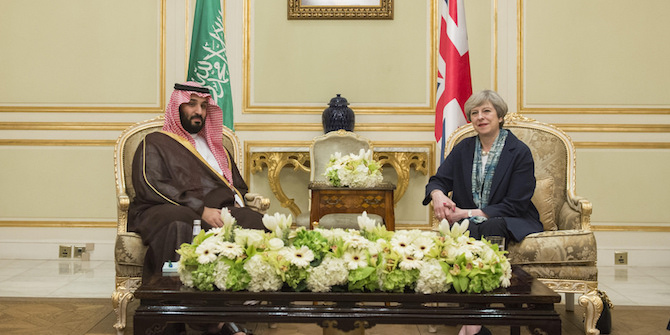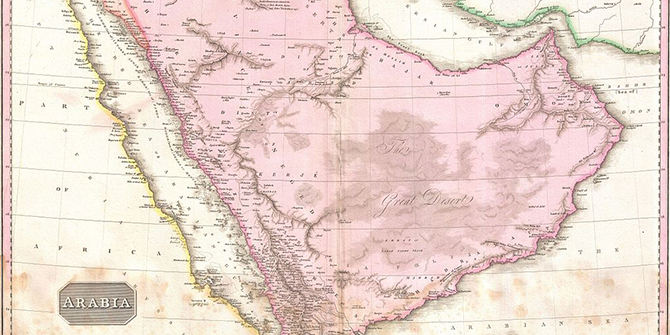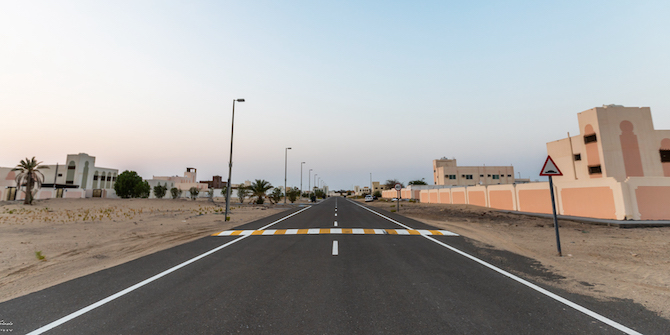by Jack Sargent

The Middle East will be the region most acutely affected by the climate crisis. The rentier states of the Gulf Cooperation Council (Saudi Arabia, Kuwait, the UAE, Oman, Bahrain and Qatar) are extremely vulnerable to climate change, yet their rentier structure hinders their ability to act decisively against it. This impasse raises the possibility of their collapse.
Rentier states are those which rely heavily on income sourced from ‘the outside world’ (i.e. proceeds from resource extraction, superpower patronage, etc.) and whose political system relies on the ‘allocation and distribution’ of this wealth. Fossil fuels are the key income for rentier states in the GCC. These states reached their zenith in the 1970s when their massive resource wealth catapulted them to the epicentre of global trade and geopolitics.
These states are home to large welfare schemes, which transfer wealth from the state to the citizen. In the UAE, for example, a citizen can expect roughly $55,000 annually. As such, rentier states extract little to no domestic taxes. This creates an implicit social contract which trades civil-political rights for economic prosperity. With taxation, representation is expected, but without it, citizens are given no voice in the political process. Therefore, the immense revenue streams of these states allow for their regimes to consolidate their rule and avoid political agitation.
The climate crisis will have profound impacts on the Persian Gulf. During this century, temperatures during summer are predicted to reach more than twice the global average. This will render some areas uninhabitable and reduce arable land, with major urban centres experiencing ‘four months of exceedingly hot days every year.’ Cities may become unliveable. This will occur alongside ‘rapid population growth and urbanisation.’
Not only will there be a spike in temperatures, but there will also be increased pressure on water supplies. The Middle East and North Africa is already the ‘most water-stressed region in the world.’ Rainfall is predicted to decline up to 60 percent if there is 4°C of warming. This will both increase water scarcity and severely damage agriculture in the region. The vast majority (70 percent) of the Middle East’s agriculture is rain-fed. As a result, food insecurity will spike. Sea levels are also anticipated to rise by 0.5 metres by 2099. This will place ‘low-lying coastal areas’ in the UAE, Kuwait, Qatar and other Gulf nations at extreme risk.
In light of the increasing temperatures, decreasing arable land, and declining water supplies, the GCC states currently have elaborate, capital-intensive policies to combat climate change. The UAE has their ‘Energy Strategy 2050’ which aims to increase clean energy usage to 50 percent of energy consumption and increase efficiency. Likewise, Qatar is investing heavily in solar power and has embarked on an effort to build ‘one of the world’s largest sustainable cities’. Similar projects are underway across the GCC nations.
These lavishly funded projects represent welcome progress and yet manage to avoid politically sensitive, but important policies. This is because their rentier structure hinders their ability to respond to climate change. Energy subsidies are an important way in which rentier states in the GCC redistribute wealth. Water subsidies have also led to GCC societies becoming ‘the world’s largest per capita consumers of water.’ In order to encourage renewable energy investment and water conservation, these subsidies would have to be removed. The financial gain from energy and water subsidies sustains a high standard of living and their removal would threaten this. Such action would constitute a renegotiation of the current social contract and may lead to instability.
While rentier states may not be beholden to their citizenry, they are deeply beholden to the interests of elites. They are an important source of political support in Gulf rentier states. The nations of the GCC rule through complex relationships between tribal, religious, political, and economic interests. Their interests’ influence in matters of state can prevent unpopular but necessary changes. For example, the Saudi Ministry of Water ‘has [been] met [with] significant resistance’ in its efforts to curtail water usage. Saudi business groups use their close ties with the royal family to frustrate this.
Rentier states will have even less room to manoeuvre as they are further constrained by the decline in global fossil fuel usage. The global transition to clean energy is progressing, and this will mean the Persian Gulf’s fossil fuels will face increasingly stronger competition from clean energy alternatives and other sources of fossil fuels. The financial well-being of the Gulf rentier states is predicated on high oil prices that may be unsustainable as clean energy is aggressively pursued globally. While GCC states have announced public plans to economically diversify (such as Saudi Arabia’s Vision 2030), these plans do not currently entail any political reform. Generally, the track record of reform in authoritarian governments is ‘mixed’.
Anything but the absolute success of reform efforts will still see a high level of rentierism. As such, the decline in finances from dwindling oil receipts will refocus efforts on maintaining internal stability and control. Policy will focus on placating the politically discontent and seeking out new forms of rent. In this search for revenue to stave off instability, there will be little appetite for all but the most necessary of climate change measures.
Rentier states have acknowledged the severity of climate change and have pledged to take action. Ultimately, however, the rentier systems that dominate the Gulf gravely hinder meaningful action on climate change. Even nations like the UAE and Oman (seen as progressive actors on climate change) ‘have focused on…protecting rents from oil exports rather than advancing a low-carbon transformation of their economies.’ It is no different elsewhere in the GCC.
Climate change presents the GCC with an existential threat. While predictions of state collapse in the Middle East are not new and are often unhelpful, it is difficult to not see the climate crisis as an exception to this rule. Political revolution did not reduce arable land or water supplies, yet it led to the total collapse of Libya and the intense violence of the Syrian Civil War. Climate change will exert immense stress on the fragile rentier states of the Persian Gulf – stress which they cannot tolerate.







4 Comments